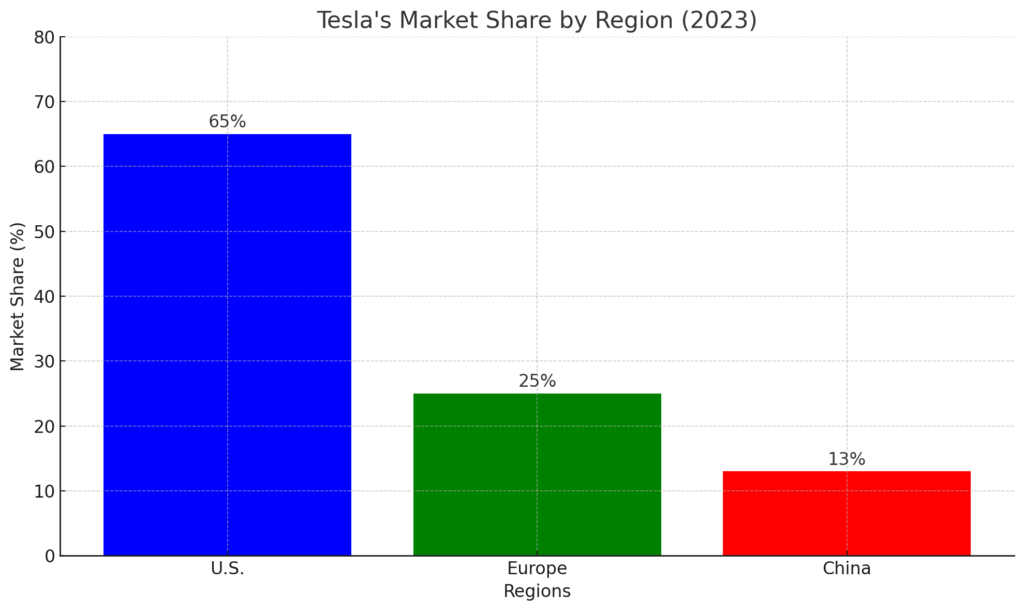In the complex ballet of global market strategies, Elon Musk’s recent move could be one of his most audacious yet. As a renowned pioneer in the electric vehicle (EV) industry, Musk’s Tesla has benefitted enormously from the U.S. federal tax credit, which offers up to $7,500 to electric vehicle buyers. Surprisingly, Musk has voiced support for proposals by President-elect Donald Trump to eliminate these incentives—a stance that seems to run counter to his company’s immediate interests. This raises a provocative question: Is Musk playing a deeper game, one where he sacrifices domestic benefits in a bid to secure greater market access in China?
The Context: U.S. EV Tax Credit and Tesla
The $7,500 federal tax credit has been a cornerstone of the U.S. policy to promote electric vehicle adoption. It has not only made EVs more attractive to consumers but has also spurred industry growth, with Tesla at the forefront. Historically, Tesla has been a prime beneficiary of this policy, which has supported the company’s rise to its current position in the EV market. However, Musk’s recent advocacy for eliminating these incentives has baffled many observers.
Musk’s Motivation: A Closer Look
Why would Elon Musk, whose company has reaped significant benefits from U.S. government incentives, advocate for their removal? One theory suggests that Musk’s motives might be connected to Tesla’s ambitions in China, the world’s largest car market and a rapidly growing hub for electric vehicles.
China’s EV market is flourishing, backed by substantial government investment and robust subsidies for local manufacturers. However, foreign companies often face strict regulations and significant barriers when entering this lucrative market. Tesla has already established a strong presence in China, with its Shanghai Gigafactory—the first to be wholly owned by a foreign auto company in China—being central to its strategy. By relinquishing U.S. subsidies, Musk could be signaling to Chinese regulators and competitors alike that Tesla is not dependent on American governmental support and is committed to competing on a level playing field. This might not only curry favor with Chinese authorities but also align with Beijing’s recent moves to phase out its own EV subsidies, creating a market-driven environment that Tesla could exploit.
Geopolitical Considerations
Musk’s maneuver must also be viewed through the lens of ongoing U.S.-China relations. Trade tensions have been high, with technology and intellectual property rights at the heart of many disputes. By aligning Tesla’s strategy with the principles of free-market competition—eschewing government subsidies—Musk might be attempting to navigate these geopolitical currents more effectively, positioning Tesla as a player that contributes positively to the Chinese economy without the baggage of being seen as an American corporate titan buoyed by federal support.
Risks and Rewards
This strategy is not without risks. Removing the U.S. tax credit could slow down EV adoption domestically, potentially hurting Tesla’s sales and affecting its market share. There’s also no guarantee that China will reciprocate Musk’s gesture by granting Tesla more favorable treatment or increased market access. The Chinese EV market is fiercely competitive, with domestic giants like BYD and NIO expanding rapidly. Tesla needs to compete with these firms on innovation and price, not just on diplomatic gestures.

However, the rewards could be significant. Greater access to the Chinese market could help Tesla secure its global leadership position in the EV industry. China offers a vast consumer base and significant manufacturing capabilities. By becoming a more integrated player in the Chinese market, Tesla could leverage these advantages to optimize its production and increase its global sales volume significantly.
Consumer and Industry Impact
For consumers, particularly in the United States, the removal of the tax credit could mean higher upfront costs for purchasing electric vehicles. However, if Tesla can lower its prices through efficiencies gained from greater access to the Chinese market, these initial cost increases could be mitigated over time.
From an industry perspective, Tesla’s move could drive other American EV manufacturers to reconsider their reliance on government subsidies. This could foster a more innovation-driven industry, where companies compete based on the merit of their technology and cost-efficiency rather than their ability to capture federal incentives.
Conclusion
In conclusion, while Musk’s support for the elimination of the EV tax credit is a gamble, it is a calculated one, aimed at strengthening Tesla’s position in the global market, particularly in China. As the next few months unfold, it will become clear whether this bold strategy will enhance Tesla’s fortunes or whether it will be a misstep in the high-stakes game of international trade and industry competition.
As we continue to monitor Tesla’s maneuvers on the global stage, the implications of Musk’s strategy—for the company, the broader EV market, and global economic dynamics—will undoubtedly provide crucial insights into the future of sustainable transportation.
For more insights into tax credit policy, dive into “The End of the EV Boost? How Trump’s Proposal to Roll Back the $7,500 Tax Credit Could Reshape the Industry.”



